.
Crumbling Rusey Cliff, 3 km from Tresparett, Cornwall: photo by Jon Coupland, 18 May 2007
You
did not walk with me
Of
late to the hill-top tree
By
the gated ways,
As
in earlier days;
You
were weak and lame,
So
you never came,
And
I went alone, and I did not mind,
Not
thinking of you as left behind.
I
walked up there to-day
Just
in the former way;
Surveyed
around
The
familiar ground
By
myself again:
What
difference, then?
Only
that underlying sense
Of
the look of a room on returning thence.
Thomas Hardy (1840-1928): The Walk from Poems of 1912-1913, in Satires of Circumstance, Lyrics and Reveries (1914)
I rode my pretty mare Fanny and he walked by my side and I showed him some more of the neighbourhood -- the cliffs, along the roads, and through the scattered hamlets, sometimes gazing down at the solemn small shores below where the seals lived, coming out of great caverns very occasionally. We sketched and talked of books: often we walked down the beautiful Valency Valley to Bodcastle harbour where we had to jump over stones and climb over a low rail by rough steps, or get through by narrow pathways to come out on great wide spaces suddenly, with a sparkling little brook going the same way, into which we once lost a tiny picnic tumbler, and there it is to this day no doubt between two small boulders.
-- Emma Hardy: from Some Recollections, ed. Evelyn Hardy and Robert Gittings, 1961
Not till his first wife had died could Hardy's love poetry for her have been written, and then it was mixed with a flood of regret and remorse for what he had lost. This kind of paradox is inseparable from poetic creation, and indeed from life altogether. At times it almost appears a sort of basic insincerity in human affection. At others it seems a flaw built deeply into the working of the emotions, creating an inevitable bias in life towards unhappiness.
-- Philip Larkin: from Mrs Hardy's Memories, 1962, in Required Writing: Miscellaneous Pieces 1955-1982 (1982)
Beeny Cliff, looking down the steep steps to Seals Hole: photo by Jon Coupland, 18 May 2007
Beeny Cliff. Looking north along the cliffside from a point on the coast path just above Seals Hole: photo by Tony Atkin, 13 September 2009
Coastal footpath at North Lodge junction. We met these birders who were watching a Peregrine falcon: photo by Jon Coupland, 18 May 2007
A Long Way Down. If you approach High Cliff on the coast path from the south the ascent is very steep indeed: photo by Tony Atkin, 13 September 2009
Buckator Cliff and Gull Rock. Sheer black cliffs on the westwards facing headland: photo by Tony Atkin, 13 September 2009
Gull Rock and Buckator Cliff: photo by Jon Coupland, 18 May 2007
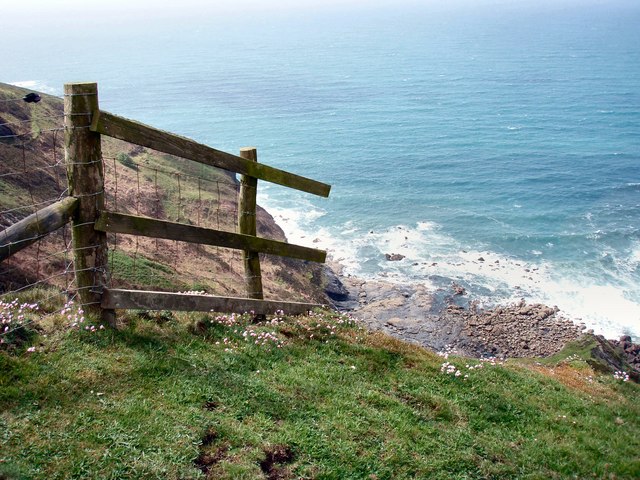
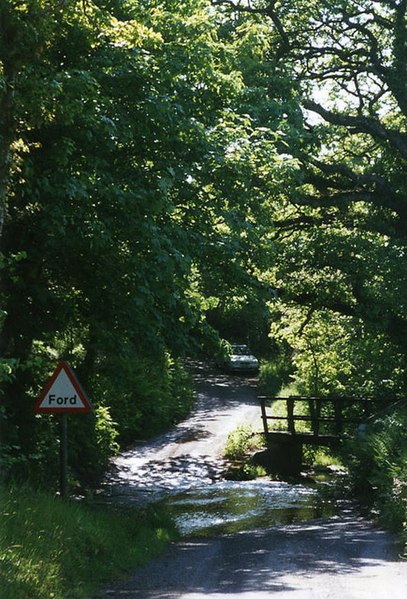


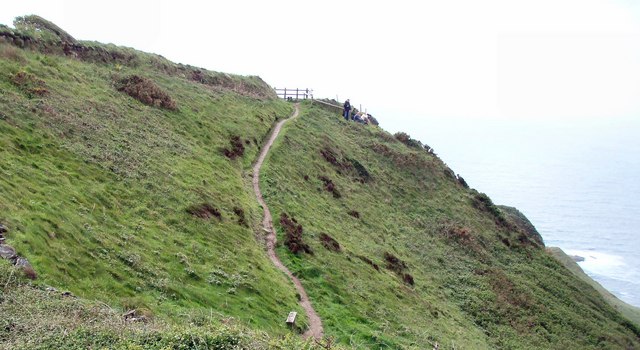


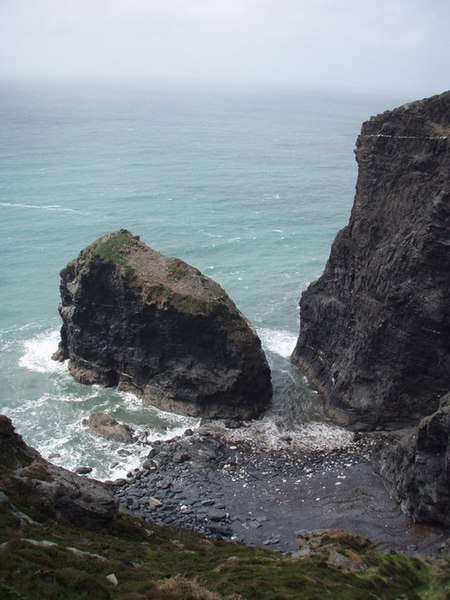
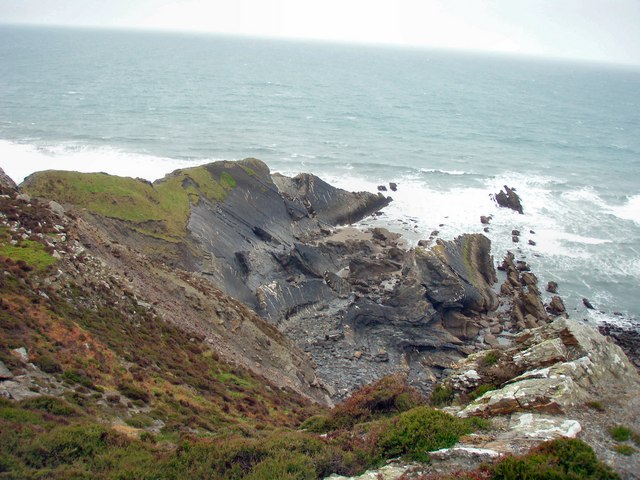
beautiful thought of reminiscence and quiet mood...love the photos!
ReplyDelete"Despite the many years of estrangement and misery, Hardy was devastated by Emma's sudden death in November of 1912. Overwhelmed by immense regret over what their life together had come to and by memories of their early happiness, especially their courting days in Cornwall, he made the long journey to Cornwall in March 1913, an arduous undertaking for a man of seventy-three, and tramped around in the mud and cold of St. Juliot and the cliffs along the coast, seeking out their old trysting places... Hardy regarded [the Poems of 1912-13] an an 'expiation'."
ReplyDelete-- Robert Mezey
Tom,
ReplyDeleteCould be West Marin, couldn't it? No one catches that tone of "underlying sense" quite like Hardy, who on another of his walks "by the gated ways" also once leaned upon a coppice gate. . .
10.3
light coming into sky above still black
ridge, waning white moon above branches
in foreground, wave sounding in channel
proposing that it was first,
that it was made that
makes it sound, what so far,
defined at this point
silver line of sun reflected in channel,
whiteness of moon in cloudless blue sky
Hardy always makes me feel like crying. I love that from Larkin--an inevitable bias in life towards unhappiness.
ReplyDeleteAnd I love that tumbler in the brook . . .
Acute observation from Mr Larkin.
ReplyDelete"and I did not mind/ not thinking of you as left behind"
ReplyDeleteA confession wholly stripped of histrionics. It hurts to read it.
Hardy's regret; I think Larkin's too sharp in talking of "a sort of basic insincerity". I do understand the line of his thinking. Public regret has the feel of theatre. Nevertheless, the gesture may be necessary.
Hardy's poetry during these years has such blinding force, I almost can't bear to read it.
"bias in life towards unhappiness"
ReplyDelete"This kind of paradox is inseparable from poetic creation"
"below where the seals lived, coming out of great caverns, very occassionally"
I tried to create a Venn Diagram about the seals. I did not know what to compare them against. The middle area remained frothy, like at Devil's Churn.
The crazy taffy and folded caramel cliffs remembered old volcanoes and maybe that's when I realized it was more like a number line, after all.
The torsion of the folded rocks at Voter's Run suggested the twisting of the knife of tortured retrospective emotion. There are as many sorts of dominant poetic emotion as there are poets of originality. In Hardy's case, the emotion seems to be rue, a prevailing sadness which seems to go beyond the personal to incorporate something essential in the human condition, the element of failure. There are shades of feeling we understand best, and which are evoked in the greatest particularity, through poetry.
ReplyDeleteIn a radio talk on Hardy's poetry, Larkin, looking back on his own starting-out as a poet, said:
"When I came to Hardy it was with a sense of relief that I didn't have to try and jack myself up to a concept of poetry that lay outside my own life -- this is perhaps what I felt Yeats was trying to make me do. One could simply relapse into one's own life and write from it. Hardy brought one to feel rather than to write -- one of course has to use one's own own language and one's own jargon and one's own situations -- and he taught me as well to have confidence in what I felt I have come, I think, to admire him even more than I did then... In almost every Hardy poem in the 800 pages [of the Collected Poems]... there is a little spinal cord of thought and each has a little tune of its own, and this is something you can say of very few poets."
Here are some of those poems:
Thomas Hardy: Channel Firing
Thomas Hardy: Drummer Hodge
Thomas Hardy: I Look Into My Glass
Thomas Hardy: The Caged Goldfinch
Thomas Hardy: The Darkling Thrush
At Voter Run
ReplyDeletethey stayed and prayed a bit
stood in line
to look at the great folds
of tortured rocks
after all--
they had forded the small river
valiently
obeyed all the signs
their feelings
were unknown
until then
it did not seem sincere
basically.
All the comments and observations and further elucidations by Tom add beautifully to the chord sounded by Hardy—the loss of someone close and dear; the feelings that arise from such a loss perhaps serve to replace or stand in for what is absent: a strange sort of gift, of rue and sadness, but 'an underlying sense,' a connection to the one who is not there, and can never be there again.
ReplyDelete"...a strange sort of gift, of rue and sadness," puts this emotion -- perhaps not that uncommon really, in later years, yet seldom spoken of -- quite beautifully.
ReplyDeleteAnd -- meanwhile back in Paradox Canyon --
their feelings
were unknown
until then
-- also has a bit of rue in it.
For at what moment does that knowing come? And if not now, when?